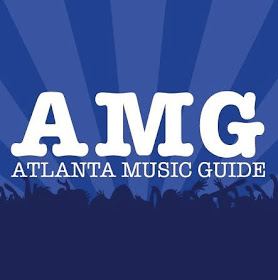I’m often asked what the process of signing a band looks like, or more to the point, how exactly a band goes from getting the attention of someone that does what I do, to actually inking a deal. Contrary to popular belief, A&R people don’t walk around with contracts in their back pocket ready to whip out to have a band they were just blown away by sign on the dotted line. And believe it or not, deals aren’t made on bar napkins either, not nowadays anyway. Here’s the process in a very small nutshell, at least where I work…
Through various networks that my colleagues and I have created through the years (discussed in an earlier blog), and through a lot of personal listening to some pretty bad music, we eventually hear about something cool that strikes our interest. Often we’ll fly to whatever city that band happens to be playing in so we can get a feel for what the band is capable of (for example, yesterday I booked a trip to see a band in Florida who’s CD is crushing me right now…more on them in another entry). Based on that, and a few other factors, we make decision as to whether or not to take the next steps. And this is where it gets challenging.
Of course there’s a criteria that we all have in the back of our minds when considering a band for signing, each person’s criteria may vary from one to another, but they are all similar (this too has been discussed in an earlier blog so no need to beat a dead horse). So let’s assume the band in question has met everything on our invisible checklist. The next step (as far as I’m concerned) is to play the songs for my colleagues. This is a sort of dress rehearsal for the final step which we’ll get to in a minute. It’s simple really, we all sit in a room (some via videoconference) with a great sound system and we listen to and discuss music in which we’re we’re interested in order to get each other’s point of view. These are people who do exactly the same job, who are on the same level, and who’s opinion we trust, and who may have an interesting perspective on the music that would help us in planning the next step, which is the step that ultimately counts the most…pitching to the boss.
Every label is structured differently but at the end of the day, no matter how big or small the label is, the signing decisions come down to the guy who is running the company, the guy who’s responsibility it is to keep the lights on, so every signing decision is taken very seriously, especially in an age where album sales are depleting more and more each day. Once the decision is made to move forward on pitching a band to the guy who signs the checks, I get on a plane and fly to New York and sit in his office and play him the band and give him my pitch. It’s my job to convince him that this band would make sense for our label and to give a compelling reason, or reasons why. We’ll sit, we’ll listen, and we’ll discuss. The thing I love about this process, as nerve-racking as it can be, is that I know the person I’m playing music for is a true music fan, has an enormous amount of experience in his job, and knows how to balance the love of music with the business of music. He might come at me with a couple of reasons why this band is the wrong fit, and while I’ll give him my arguments to the contrary he is often right (the usual). Or, it might be a case where we agree that perhaps it’s a bit too early in the band’s process and we’ll just keep an eye on how things progress for them (even more usual). Or he may agree with me and give me the green light to move forward on signing the band and we all live happily ever after (the highly unusual). In this case we usually arrange for him to see the band live either by having the band come to New York to play a show (preferred), or in some cases play the office performance space (not-so-preferred), or he may fly to the band’s home town to see a show (also preferred). I tend to opt for a real show so he can get a feel for what the band is truly capable of in a live setting. If we absolutely have to I’ll have the band do a showcase in the company performance room, but that is often super uncomfortable for both the band and the people who are there watching as the room tends to be a bit sterile, and let’s face it, there’s really nothing quite like a club setting. Although having said that, one of the bands I signed played the performance room and killed it and subsequently got the deal. No matter what setting the band plays in, it’s do or die from that point forward. If it’s great, then we move into the “let’s make a deal” phase, if it’s not, then well, we don’t move into that phase.
No matter how the pitch turns out, I’ve done my job which is to seek out and find what I think is the best of the best nation-wide. I wish it was as easy as signing bar napkin at 2AM after seeing a mind-blowing show, but after a few years of doing this, I’m realizing more and more each day that it’s much safer to have a few filters to help me make the right choices and ultimately keep my job.
Jay Harren
(Follow me on Twitter)
